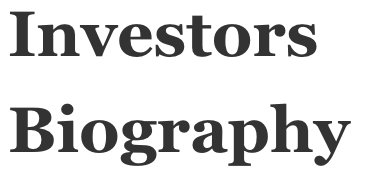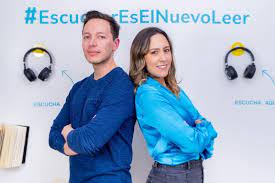Born in Mexico City, entrepreneur Pamela Valdes Esteva recognized the pervasive influence of drug cartel narratives in Latin American culture. Aiming to show people in her community that there are other paths to success, she cofounded Beek, an audio platform for Spanish speakers.
Early Life
The oldest of three daughters, Pamela Valdes Esteva was born into a traditional family with a stay-at-home mom and a father who worked and financially supported his family.
Before she was born, Pamela’s parents expected her to be a boy, and she says her father raised her as one. She learned to be competitive, a characteristic not typically associated with femininity in Mexican society. Possessing this trait proved to be a blessing, as Pamela was able to aspire to goals that many of her peers were not permitted to pursue.
Also transformational were the stories her mother and father told her. An outcast who was bullied as a child, Pamela learned from her parents that many people, including Bill Gates, were once bullied.
In sixth grade, Pamela set a goal to win the Knowledge Olympics. Despite not being the top student in her class, she emerged as the national competition champion. Subsequently, during her high school years, she dedicated herself to securing a merit scholarship to the Instituto Tecnológico Autónomo de México (ITAM).
Pamela encountered resistance, even from her own mother, who had grown up with the belief that women could never be the primary breadwinners. A female high-school guidance counselor also told Pamela that she lacked the discipline to excel at ITAM and advised her to consider another school.
Pamela, who graduated from high school with the highest GPA in her class, nonetheless earned the scholarship to ITAM. She began studying at the school in 2012.
College and Launching Beek
Pamela finished her first semester at ITAM at the top of her class, defying those who had doubted her. From her success, she learned the importance of giving full effort to everything she did. Her high grades at ITAM also taught her not to define herself by what other people thought of her, a lesson that would come in handy as she encountered myriad setbacks while building her career as a tech entrepreneur.
That career started at ITAM. During a class assignment where students had to pitch business ideas, she conceived the idea that would eventually evolve into Beek.
In its earliest iteration, Beek was a social network where Spanish-speaking readers could review books. Recognizing that tales of drug cartels dominate Latin American culture, she decided she wanted to connect people in her community with stories that show the many other possibilities in life.
Pamela made it to the final round in her ITAM class but ultimately lost, thus missing a chance to spend a summer at MIT. Not giving up, she approached one of the judges, who then invited her to the college to present the project.
Later, after convincing a professor to allow her to take an application-only incubator class during her year studying abroad at the University of Texas at Austin, she applied to TechStars. She made it to the final round but again fell just short of winning.
Pamela dropped out of college after becoming the first Latin American Thiel fellow and subsequently applied to Y Combinator, a start-up accelerator. The prestigious startup accelerator rejected her several times before accepting her first into its summer fellowship and then its accelerator program in the winter of 2017.
Pivoting to Audio
Pamela had previously struggled with raising funds for Beek, but through her time at Y Combinator, she was able to attract $2 million in investments. At its height, the book-focused version of Beek boasted 2 million visits per month and 30 times more reviews of Spanish-language books than what was on Amazon at the time. The company wasn’t profitable, however, and in late 2018, Pamela realized this version of Beek didn’t have a strong revenue model.
With the help of fellow cofounder Guillermo Sequeira, Pamela pivoted the company to audio in early 2019. The decision came about after recognizing that while native Spanish speakers outnumber English speakers by 1.5 times, the amount of Spanish-language audio content is 10 times less.
Growth of Beek
In its new iteration, Beek began connecting users with audiobooks as well as original audio content. Investors saw an opportunity, and with Pamela leading as CEO, Beek raised $5 million in seed funding. The platform, which operates on a subscription model, proceeded to see consistent year-over-year revenue growth. From 2021 to 2023 alone, its subscriber base expanded 18-fold.
Beyond connecting Latin Americans with diverse stories, Beek began bettering people’s lives in another way when it unexpectedly became a revenue generator for its content creators. According to Pamela, in the first month that creators spend on the platform, over a third earn at a rate higher than their local minimum wage. Thanks to Beek’s subscription model, where users can either subscribe to individual creators or pay $12 monthly for unlimited access to the platform, the company has created a sustainable passive income for many.
Beek raised another $13 million in early 2023. As Beek’s subscriber base continues to grow, Pamela has plans to draw on its recent infusion of capital to expand and enhance its services. In leading a platform where the most popular content is related to personal development and business success, Pamela hopes to continue to help Latin Americans achieve their dreams.

